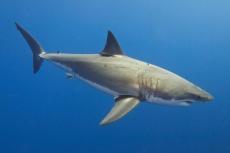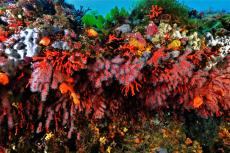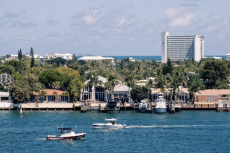Controversial Gibraltar artificial reef 'teeming with life'
Gibraltar claims marine life explosion vindicates reef heavily protested by Spain.
According to Gibraltar’s department of the environment, an artificial reef protested by Spain is now “exploding with life”. Initiated two years ago, the 70 concrete blocks sunk near Gibraltar airport’s runway are already home to a large range of marine species from octopuses to triggerfish.
“This is what happens when you let Mother Nature do her work. We kick-started things because we know that in the area where the reef was laid there used to be sea grass, so we are trying to restore the marine environment to its former glory,” said Stephen Warr, Gibraltar’s senior environment officer.
Spain made a fuss
The reef’s creation in July 2013 prompted accusations from Spain, which does not recognize Gibraltar’s right to territorial waters. Claiming it to be a deliberate ploy to prevent its fishing fleet from operating in the area, Spain intensified border checks months later. Officially part of a smuggling clampdown, the result was crippling traffic delays in and out of Gibraltar.
At the time, Greenpeace pointed out that Spain had “deployed hundreds of them to protect its waters” from aggressive trawling techniques. “Such reefs are a very common practice. This is a diplomatic conflict over maritime sovereignty and not an environmental one,” said Celia Ojeda, Greenpeace Spain’s spokesman for oceans and fishing, adding that Spain and Gibraltar have “plenty of problems to solve in Algeciras Bay, such as high levels of pollution”.
Dr. Eric Shaw, head of the marine section at the Gibraltar Ornithological and Natural History Society, has been involved in the creation of artificial reefs in the area since the 1980's, typically using stripped-down old ships. According to Shaw, there is “all kinds of life in the new reef from microbiological species to conger and moray eels” which appreciate the holes in the blocks.
“This is a key development for the marine development but one expects politics to jump in and it does,” he added.
- Log in to post comments













































